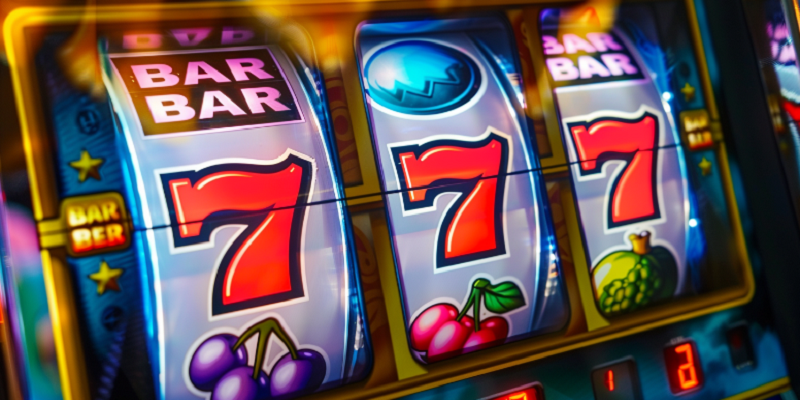Casinos occupy a special place in modern-day entertainment. They combine mathematics, psychology of humans, sociality, and state regulation all under one roof. Millions of people go to such establishments annually—both in person and online—to test their fortunes. Three things are at the very center of the experience: luck, risk, and the promise of substantial profits. How they interact with each other accounts for the long history of the popularity of casinos around the globe.
The Nature of Luck in Gambling
Luck is the focus of casino action. In some games, there is minimal control available through strategy, but the deciding factor still remains probability. The roll of a roulette wheel, shuffled cards, or dice toss dictate outcomes that no one can fully predict. This element of chance introduces uncertainty and excitement.
Games such as spinmacho demonstrate how far human beings are willing to go in responding to randomness. From classic table games or internet slots, the hope that a single bet will pan out continues to be a siren call for gamblers throughout the world. The attraction is not only in entertainment but also in the psychological appeal of random returns.

Probability explains much of what happens at tables and machines:
- In European roulette, a wager on a number is 1 in 37 odds.
- There are different Blackjack rules, but house advantage is usually 0.5% to 2%.
- Slot machines employ random number generators such that each spin is separate from spins preceding it.
- Short-term outcomes may appear random, but long-term numbers always favor the house.
The Role of Risk
All of the decisions at a casino are risk-related. The user needs to choose whether to retain their money or risk it on a possible gain. This offering is what makes the experience stressful.
Types of risk are:
- Financial: Wagering involves an upfront risk of loss.
- Emotional: A string of wins creates euphoria, and successive losses induces frustration.
- Time: Extended playing distorts the perception of hours passing, extending individuals’ visit to the tables.
Why Big Wins Matter
The chance at a large payout attracts lots of individuals to casinos. While the odds of winning a large jackpot remain small, the belief that it may occur keeps people interested.
Psychology is a key factor here:
- Intermittent reinforcement: Infrequent or small wins continue to drive people to play, even when losing.
- Availability bias: Individuals remember the excitement of a win much more prominently than the disappointment of losing.
- Social influence: Observing or hearing of other players’ winning experiences creates the belief that similar things can occur to anyone.
Types of Casino Games
The casino floor and websites host a wide range of games to suit different tastes. The below categories highlight the balance between luck and strategy.
Table Games
Roulette, blackjack, and baccarat define this section. Roulette is almost all about chance, with blackjack having strategies that reduce the house edge slightly. Baccarat, though simple, is popular with most because it has a small casino advantage.
Slot Machines
Slots occupy huge sections of gaming floors and internet sites. They operate on random number generators, with every spin generating a standalone result. Free spins, wild symbols, and bonus games introduce variability, and progressive jackpots bring the possibility of life-altering wins.
Poker Variants
Poker differs from most casino games in that players wager against each other rather than the house. Bluffing, strategy, and judgment are just as crucial as luck. While luck determines what shows up in the cards, skill controls how they’re played.
The Math of Success
Casinos thrive on mathematically measurable advantages. The “house edge” guarantees profitability over the long run. Though tiny as a percentage, this margin builds up over thousands of bets.
Examples:
| Game | Representative House Edge |
| Roulette | 2.7% (European) |
| Blackjack | 0.5–2% |
| Baccarat | 1.06% (banker bet) |
| Slots | 2–10% |
Casino Environments and Player Behavior
The casino atmosphere is designed to encourage extended play. Lighting, music, and the ringing of coins or electronic chimes are used to create a celebratory atmosphere. The absence of clocks and windows generates less urgency about time. These factors influence behavior as much as the games themselves.
Online Casinos and Technology
Technology expanded casino usage beyond geography. Players now play on computers, tablets, and mobile phones. Live dealer games stream tables in real-time, combining computer convenience with social interaction.

Responsible Gambling
As gambling is risky, responsibility is essential. Regulators and casinos encourage measures to protect players against harm.
Successful measures are:
- Adopting stringent time and spending limits.
- Through self-exclusion facilities when play is becoming difficult to manage.
- Professional treatment for gambling issues.
Economic and Cultural Influence
Casinos have an influence on communities in many ways. They create employment, they bring in tourists, and they bring in tax funds. Most of the large ones integrate hotels, restaurants, and entertainment, broadening their economic reach.
Myths and Misunderstandings
Casinos breed a great deal of misconceptions. Refuting them tends to make players view games more realistically.
- Machines “due” for a win: There is no relation between the current outcome and the next one. Each slot machine spin stands alone.
- Hot or cold runs: Probability doesn’t vary based on recent results.
- Guaranteed winning systems: While bankroll management can prolong playing time, no system is able to eradicate the house edge.
The World Picture
Casinos are controlled differently worldwide. Some states restrict gambling substantially, others encourage it as a tourist event. Internet casinos further extend the reach, though access often depends on the jurisdiction.
Looking Ahead
Casino development in the future will continue to be tech-focused. Virtual reality would be employed to replicate immersive game worlds, and blockchain could introduce new payment and transparency protocols. Platforms online will continue to grow, and regulation will aim to balance protection for consumers with innovation.
Conclusion
Casinos are more than gaming floors and virtual spaces. They establish the extent to which probability, psychology, and design converge in creating a foreseeable type of entertainment. Chance energizes randomness, risk establishes stakes, and expectation of big payouts drives drive. Mathematics guarantees house profitability, and safe gambling ensures society sustainability.






